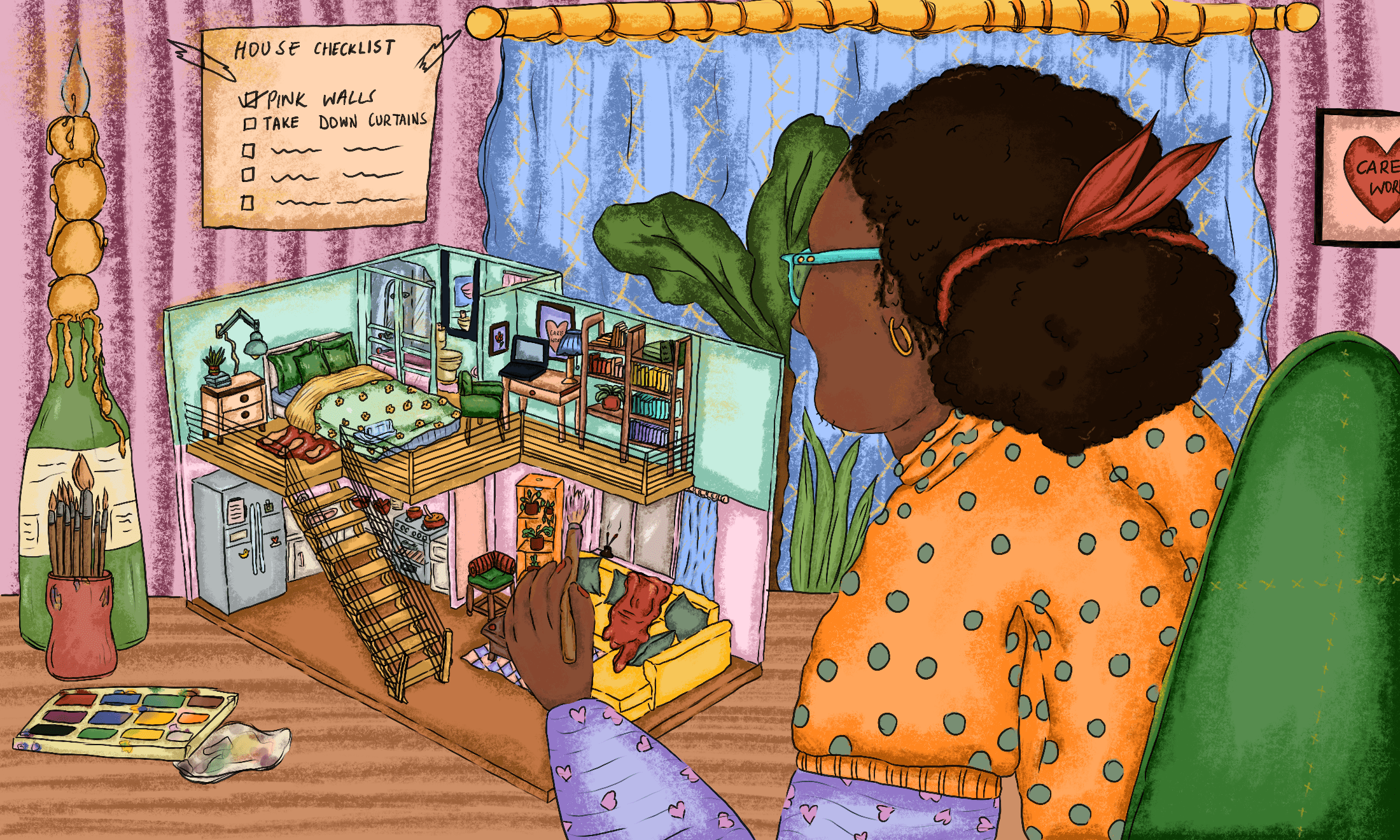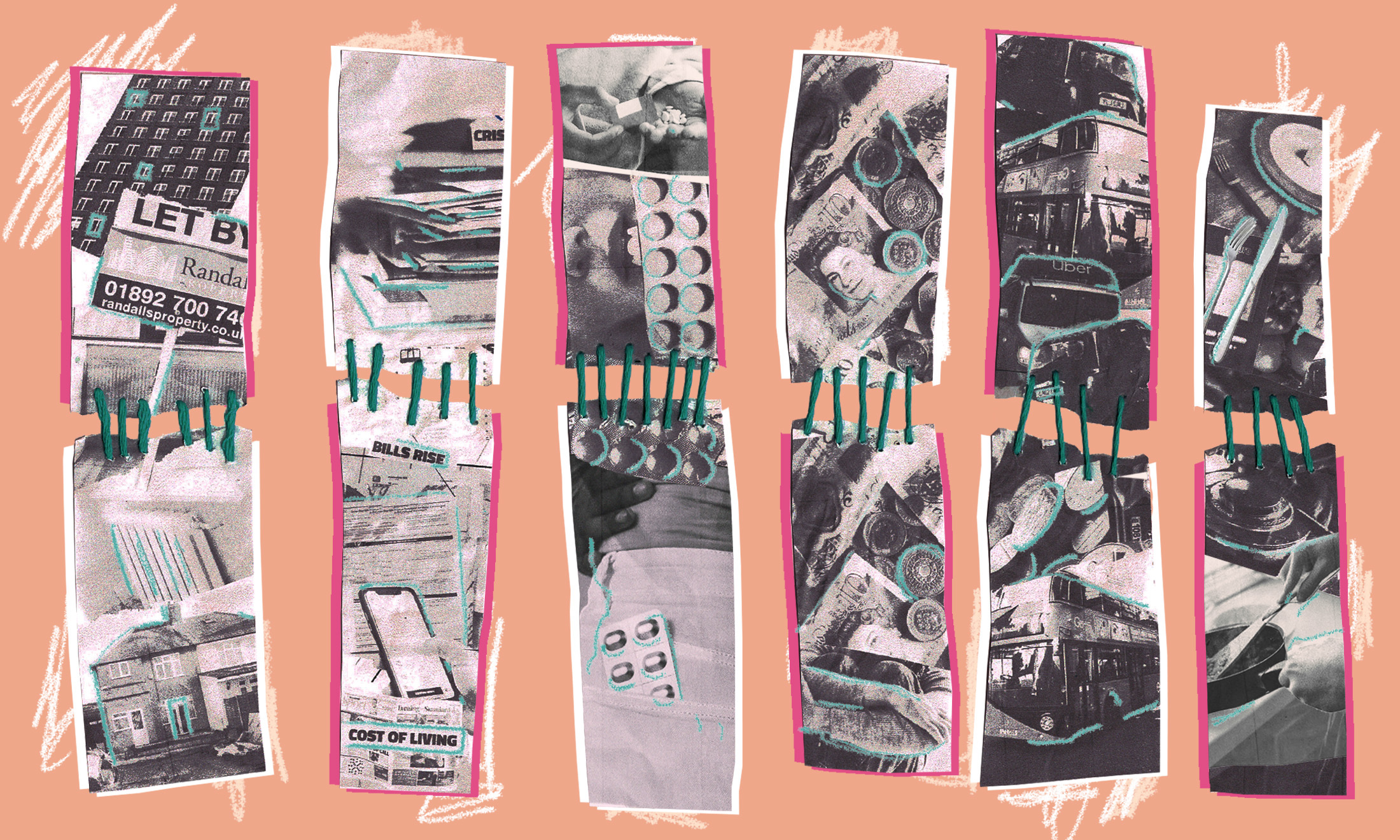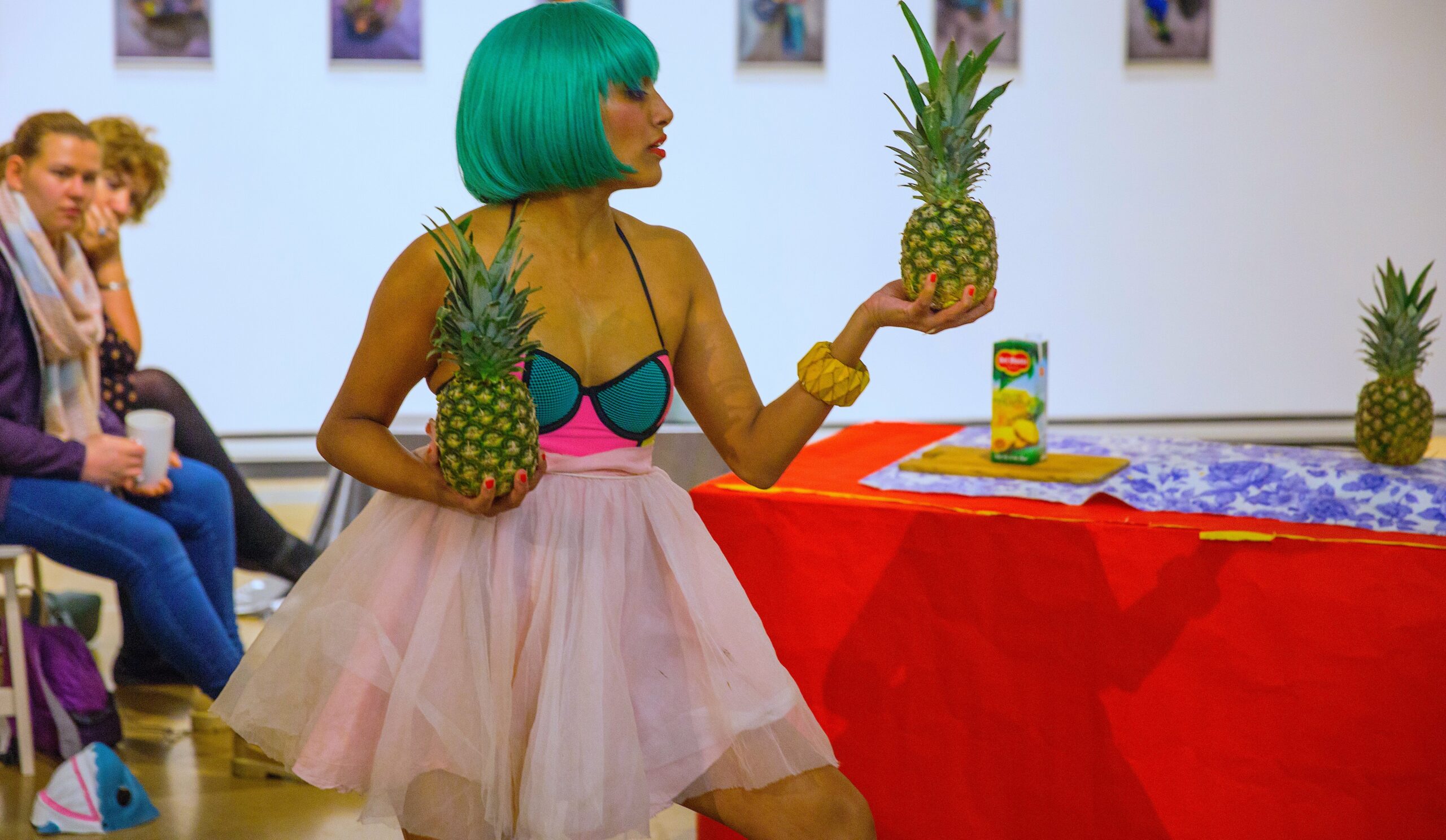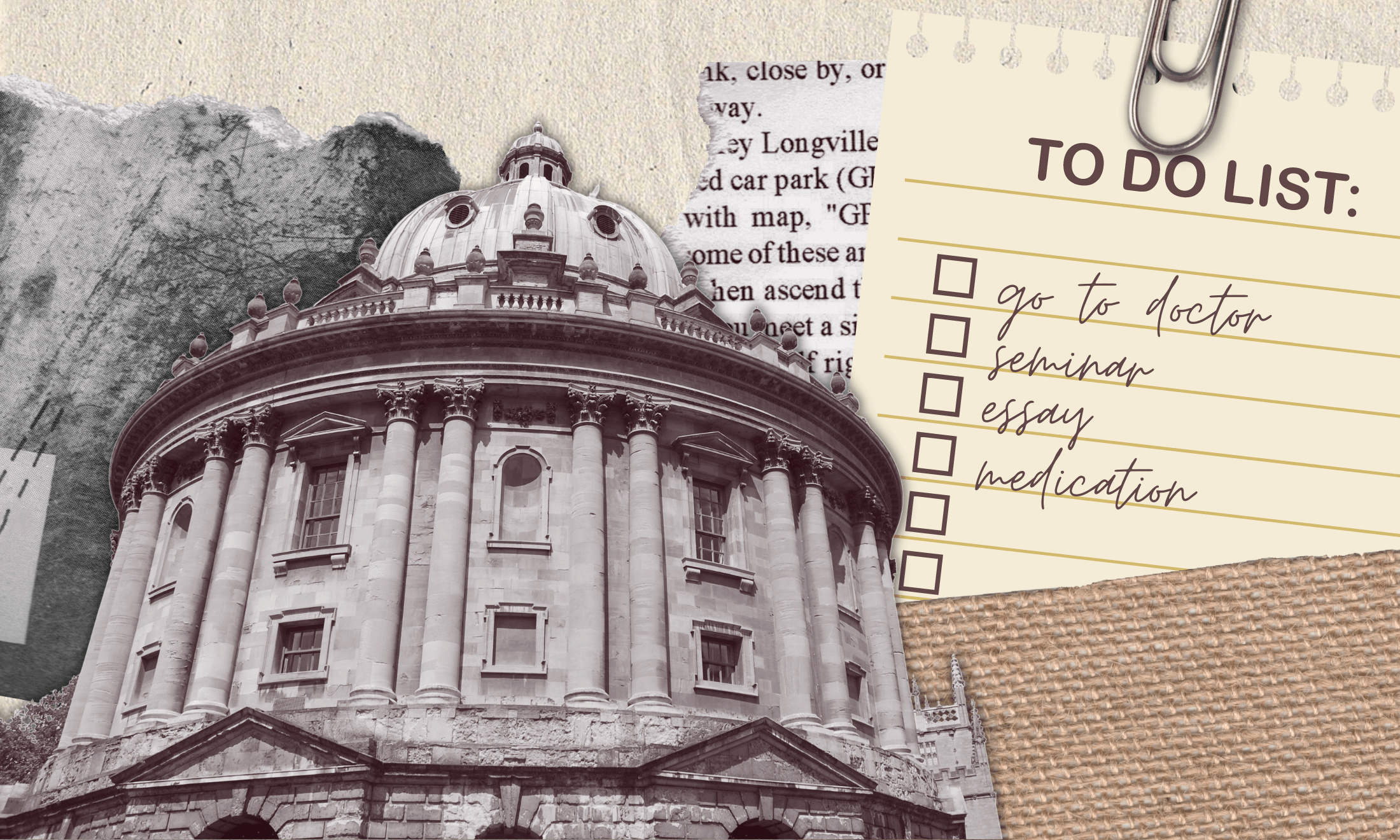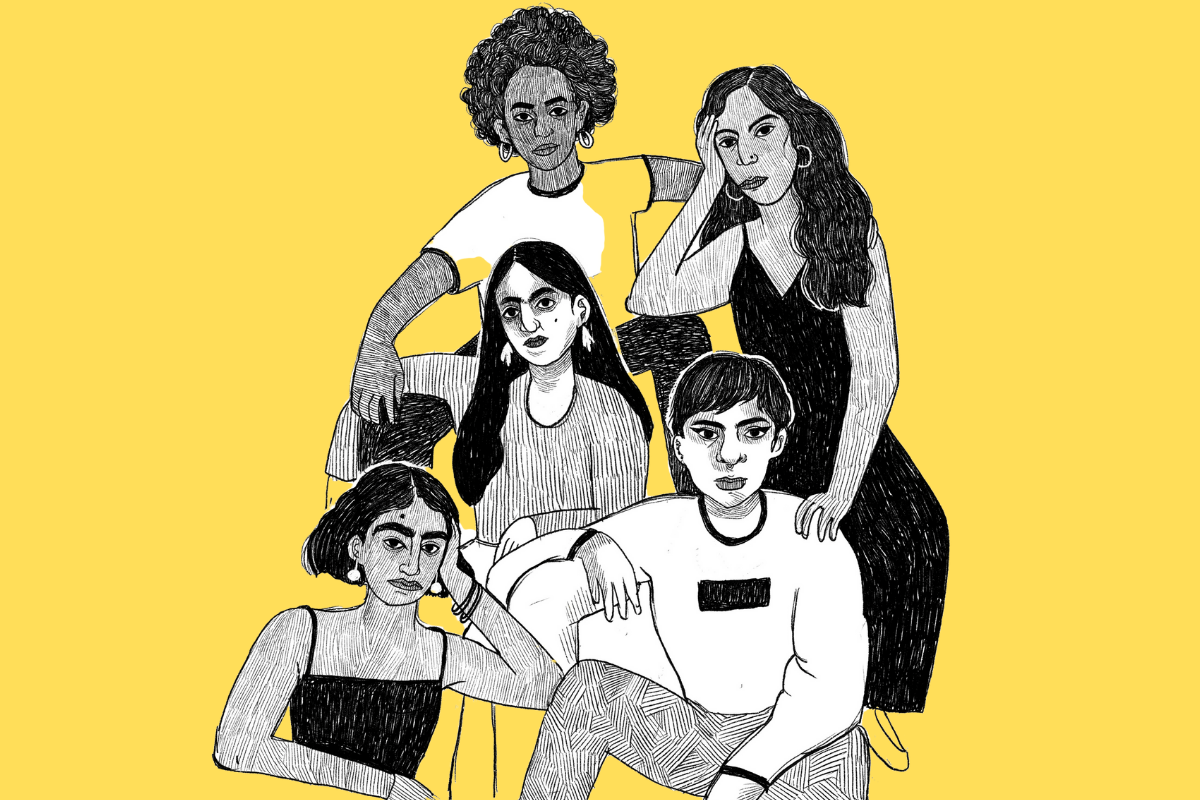
via Canva
As a chronically ill person, I know it is vital we approach coronavirus through the lens of community
Supporting those who are the most vulnerable throughout this period of fear and illness is a must, but we should also aim to take our learnings forward.
Lauren Nathan-Lane
15 Mar 2020
Illustration by Rama Duwaji
I have been chronically ill for nearly 10 years, including being long-term housebound for periods of my life. And I’m not the only one. Across the world, there are people with chronic health conditions that lead us to spend our lives inside, in isolation. So the prospect of further time in “isolation”, due to coronavirus, doesn’t scare us. In fact, we’re experts in how to keep our minds busy.
What does scare us is the prospect of catching viruses and infections. We are terrified of catching coronavirus. Yet all we keep seeing on social media are comments like, “It’s ok, it’ll only kill the old, sick and disabled”. Do you realise that we can see you? We can see you talking about our lives as if they’re disposable, as if it’s just something that’s just got to happen.
Last weekend, a friend asked me, “Whatever happened to community?” I didn’t know what to tell her. Being scared is understandable, but while some are speculatively stockpiling 50 hand sanitisers and a shelf full of soap, they’re taking those things away from those who literally need them to survive. People like me rely on sanitising wipes and sprays – I need them to clean my mobility aids. There’s no point in me washing my hands 20 times a day if I can’t then keep my self-propelling wheelchair or my walking sticks clean.
“People like me rely on sanitising wipes and sprays – I need them to clean my mobility aids”
Now it’s time to keep everyone safe, it seems like it’s every person for themselves. This frame of thinking is deeply immoral – as it throws vulnerable people under the bus. Able-bodied people have opportunities here to make small changes to their everyday lives in order to keep people like me safe, and we can see them refusing to do so. We are not disposable, and we will not stand for people risking our lives.
Many of us in the disability community are also shocked at all the adjustments that able-bodied people are suddenly making and getting, now that serious illness might affect them. Many of us have been fighting for years to get adjustments to university timetables, or to see our lectures streamed online so that we’re still able to study while we’re housebound. Yet, now the coronavirus has come, our long-sought-after adjustments are being implemented en masse.
The same goes for the working world. I am exceptionally lucky to work for a children’s charity that goes above and beyond to ensure I can work from home and have flexible working hours so that I am able to work part-time. But jobs and workplaces like this are a rare find. We’re told job after job that this isn’t a reasonable adjustment to make. Yet with coronavirus, many organisations are asking staff to work from home, and are finding systems to ensure it’s a success.
When the plastic straw ban came into play disabled people had to campaign to make it clear this would negatively impact our day-to-day lives, to get anyone to pay attention. Yet now the coronavirus has come, coffee shops are pivoting back to single-use plastic. We see society’s ableism. And we will remember it next time we are refused access or accommodations.
Money to tackle coronavirus has materialised – which is an important step towards keeping people safe. Yet, when it comes to funding for research around illnesses such as ME (myalgic encephalomyelitis), fibromyalgia, EDS (Ehlers-Danlos syndrome) and other misunderstood chronic illnesses, we’re often told there’s no money available in the health pot for us. We must continue to live our lives feeling as if we have the most horrendous flu for years or a lifetime, with no help.
“This is the time to step up your allyship and support those who are most vulnerable”
I completely understand that the prospect of spending two or more weeks inside might feel very stressful for someone who has never had to do it. Chronically ill people sympathise with you. Spending days upon days inside, perhaps with no face-to-face human contact at all, is difficult and may put a strain on lots of people’s mental wellbeing.
So, some tips for you, from some experts in isolation: keep to a routine if you can (set an alarm and eat and normal times), open windows where possible, read that stack of books you never get time for, FaceTime your best mate, start a new craft or puzzle and watch that whole series on Netflix.
This is also the time to step up your allyship and support those who are most vulnerable, if you can. Donate to your local food banks, check on your elderly neighbours and chronically ill friends and offer to do their food shops for them – in a safe manner. Check-in on your friends with limited money, especially those who may not be able to stockpile. Offer to buy them some tins. Share out some of that hand sanitiser and distribute your wipes to more vulnerable people. Try and donate money or resources to refugee charities, who will have people fighting the coronavirus in the most inhumane circumstances.
Fight for the rights of incarnated people, and those who are homeless – who are at huge risk of getting sick without proper healthcare. Stand up for freelancers and people who work on zero-hour contracts, who might not be able to pay their bills. Look beyond your world and any structural advantages you benefit from. And when this passes, don’t forget about us disabled people – we will still be watching.
For more information on mutual aid go to @CovidAidUK

